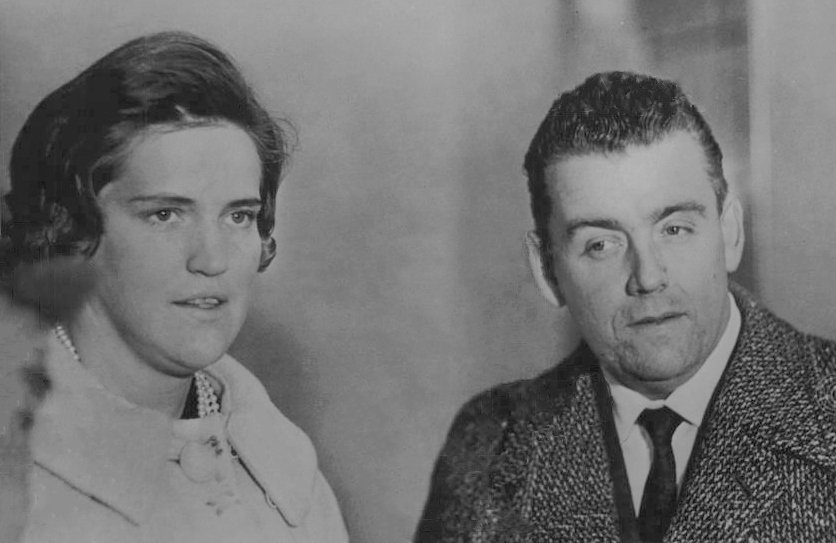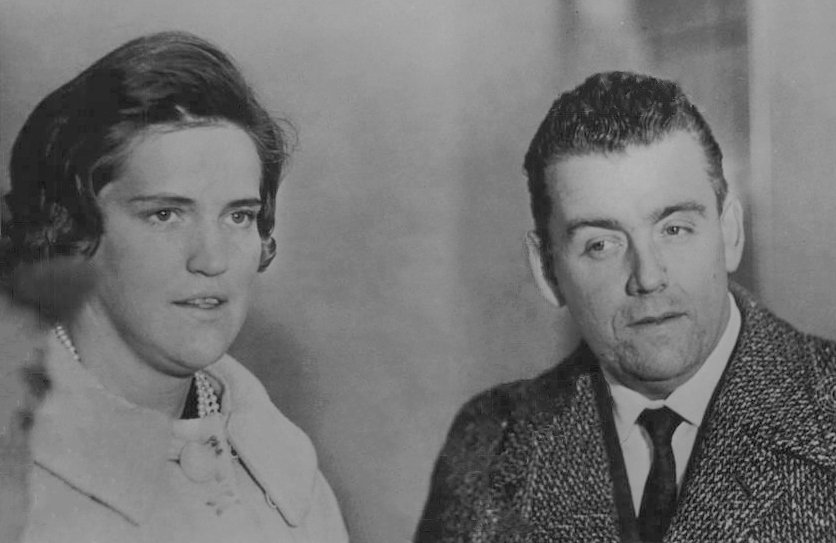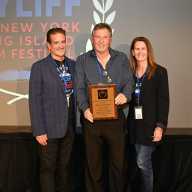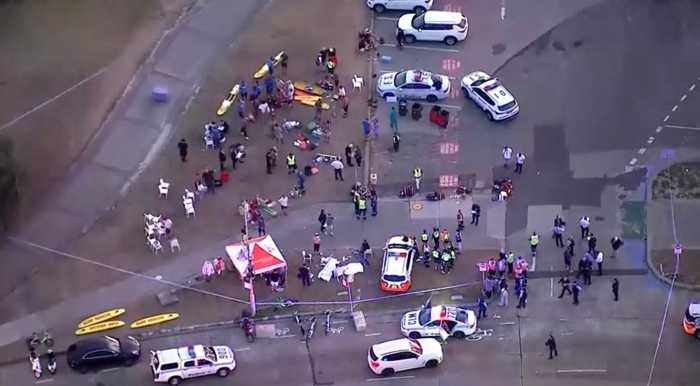
Eveline and Robert Thompson, circa 1965.
Early July 1961, within the rows of cape cod houses and manicured lawns of North Gardiner Drive Bay Shore, Robert Thompson and his German-born wife Eveline were relocating from Detroit with their three children Patricia, Karen, and Dean. The red cape at 1693 North Gardiner Drive represented a new beginning for Robert’s family and an attempt to escape his Soviet KGB handlers.
Within a year, Thompson established himself as a fuel oil delivery man and later owner of Best Fuel Oil Service on 345 Little East Neck Road in West Babylon. At first, Thompson was seen as cordial and not political within his tight-knit network of neighbors. After November of 1961, Thompson’s personality and temperament seemed to change.
At first, Thompson welcomed his next-door neighbor Benjamin Young and his family, who were African American. However, in a short time, he would hang nooses on his property facing Young’s house and put a sign on his lawn that said: “For Sale Mixed Neighborhood.” Other changes included sudden support for Barry Goldwater’s anti-communist stance and a noticeable chain-smoking habit.
Among his neighbors, Thompson used to brag about his service during World Ward II, but being in his late 20s made it impossible for him to be of age for any branch of the service at that time. But the most peculiar thing that made him and his house stand out was the 50-foot radio tower and the noises from his basement all night and early morning, specifically between 3 and 4 a.m.
In his newly established business, his co-workers and employees noticed a shift in his personality from sociable to having random mood swings and popping pills, which Thompson claimed were for his heart.
On Jan. 7, 1965, the FBI stormed into Thompson’s oil service office and took him into custody. At his home on North Gardiner Drive, a fleet of FBI cars blocked off the block to execute a search warrant. In the days that followed, neighbors, to their astonishment, will learn that Thompson was part of a four-person Soviet spy cell, including Soviet embassy counselor Boris Karpovich and United Nations Russian interpreters Steve and Fedor Kudashkin.
Thompson retained Sidney Siben from Bay Shore law firm Siben and Siben and pleaded not guilty to espionage charges. He was arraigned in U.S. District Court in Brooklyn and released on $15,000 bail.
The prosecutor built a strong case against Thompson. Since 1963 the FBI documented 12 meetings between Thompson and Fedor Kudashkin. These meetings were arranged at Lynbrook, Valley Stream, Oakdale, and Copiague train stations. The two signaled to each other using different color cigarette lighters. Thompson would receive $300 for any intelligence he provided about gas lines/ tank storage and power plants throughout the region and various characteristics of an average New York suburban resident.
Additional to his documented Long Island intelligence gathering, FBI agents in Detroit put together a dossier on Thompson dating back to 1957 when he was in the Air Force stationed in West Berlin, where he was court-martialed and dishonorably discharged for excessive drunkenness. Following his dishonorable discharge, he was recruited and trained by Communist East German and Soviet officials for intelligence gathering. In Detroit, Thompson provided details related to the Rouge Park Missile site to Soviet agent Hemet Kurlinsky.
With the 12 documented meetings and the lengthy dossier, the prosecutor recommended the death penalty, which pushed Thompson into a plea deal. On March 9, he changed his plea to guilty, Thompson told Newsday reporters:
“It was tearing me up. What I was doing, and I didn’t care if I was caught. After a while, I was afraid of fear itself and contemplated suicide. I am glad it is finally over.”
In May 1965, Robert Thompson was sentenced to 20 to 30 years. At the sentencing, Judge Walter Bruchhausen stated: “The defendant was engaged during six years undermining our national security. It is clear that your criminal activity warrants this severe punishment.” Thompson would remain in custody until 1978 when the Soviet Union agreed to a prisoner exchange deal over Myron Marcus, who was arrested in Soviet-allied Mozambique after an emergency plane landing. As of the 1990s, Robert Thompson was living in Germany and did not want to return to the United States.


























